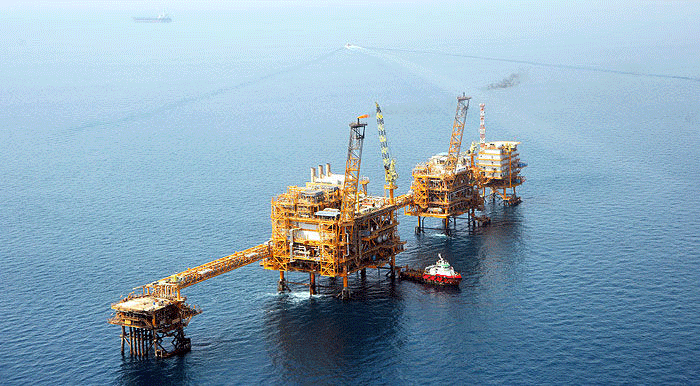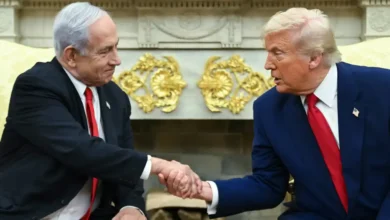Kuwait revamps business landscape for innovation and growth
The World Economic Forum report states that Kuwait has removed trade barriers with a new electronic clearance system, part of a Gulf initiative to tackle supply chain disruptions.

• Gulf countries have taken major steps to ease supply chain disruptions and facilitate trade, increasingly turning to Asia, which now absorbs over 70% of Gulf oil and gas exports, while relying on imports for 85% of food and 65% of machinery.
• Gulf countries are critical in addressing the evolving supply chain crisis, worsened by the COVID-19 pandemic, the Russia-Ukraine conflict, and Red Sea trade bottlenecks.
• Governments play a key role in improving supply chains, and in the Gulf, Bahrain’s regulatory initiatives, including a sea-to-air hub and a trade agreement with Saudi Arabia, have streamlined trade.
Kuwait has ramped up efforts to improve its business environment by reforming processes related to business establishment, credit access, property registration, and the approval of construction and facilities, a recent report stated, according to Al Qabas newspaper.
The World Economic Forum report stated that Kuwait has removed barriers to cross-border trade by implementing a new electronic clearance system, as part of a Gulf initiative to address the impact of supply chain disruptions.
The report highlighted that Gulf countries have taken significant steps to mitigate supply chain disruptions, ease congestion, and facilitate trade flows. It also noted that these countries are increasingly turning to emerging markets in Asia, which now absorb more than 70% of the total oil and gas exported from the Gulf, while relying on imports for 85% of food and up to 65% of machinery and electrical equipment.
The report emphasizes that the Gulf states are among the most urgent regions to address the evolving supply chain crisis, following extraordinary global events, including the unprecedented shock of the COVID-19 pandemic, the Russia-Ukraine conflict, and trade bottlenecks in the Red Sea.
The World Economic Forum listed three successful approaches, suggesting that they could be applied in other countries and regions facing similar challenges:
1. Paving the way for trade
Governments play a vital role in paving the way for more efficient and shock-resistant international supply chains.In the Gulf countries, several regulatory initiatives have helped remove barriers, facilitating smoother trade.
In addition to investments to simplify sea-to-air shipping operations through its sea-to-air global hub, which provides container rotation within two hours, Bahrain has entered into a mutual recognition agreement with Saudi Arabia to accelerate trade. The construction of the King Hamad Bridge project will also create a second bridge connecting Saudi Arabia to Bahrain.
The United Arab Emirates (UAE) has invested in a range of strategic economic plans designed to promote logistics as an engine of growth. These include multimodal transport solutions – such as the Etihad Railroads project to connect key hubs across the region – and regulatory reforms aimed at improving operational efficiency and competitiveness.
2. Taking advantage of technology
Supply chain bottlenecks have become more common in recent years, such as those experienced during the COVID-19 pandemic or the disruption of grain exports caused by the conflict between Russia and Ukraine. This is a particular concern for import-dependent countries like those in the Gulf, where approximately 85% of food is imported. When food supply chains falter, governments may face shortages or rising costs.
To address these complex logistics challenges and reduce vulnerability, Gulf countries are using tailor-made technological solutions.
In Bahrain, technologies such as vertical agriculture and aquaculture are helping the country move closer to achieving food self-sufficiency. With increased productivity and growing food reserves, along with 2030 targets, enhancing independence in the agricultural sector is a national priority.
Saudi Arabia is investing in innovation and research to diversify its agricultural sector, improve sustainability, and reduce dependence on imports. Recent steps include a $1 billion government investment in high-tech greenhouses equipped with smart technology to reduce irrigation water use by up to 60%.
3. Formation of strategic partnerships
On the closing day of the 2022 World Economic Forum annual meeting in Davos, Scott Morrison, former Prime Minister of Australia, noted, “The lesson learned from these times is that the resilience of the supply chain requires a new partnership between countries, governments, and companies.”
Bahrain has led public-private partnerships to establish itself as an international logistics hub. The country also strengthened its trade relations with Saudi Arabia through the Takamul program, which allows Bahraini products to be treated as Saudi products and grants a 10% preference in government purchases to Saudi companies participating in the program.
The UAE and Australia are considering negotiations on a historic Comprehensive Economic Partnership Agreement in 2024. By streamlining trade processes, eliminating tariffs on a range of goods and services, and encouraging private sector cooperation in priority sectors, this bilateral free trade agreement will help create flexible and frictionless trade channels between the two countries.
Adaptation and prosperity
The report explained that the world’s complex logistics systems transport everything from rice and wheat to computer chips and cars. These vital networks have been tested in recent years, reminding companies, governments, and consumers of the importance of strong and flexible supply chains. In the Gulf countries, a region more vulnerable to supply chain disruptions than others, the measures taken demonstrate that it is possible to adapt and thrive.













